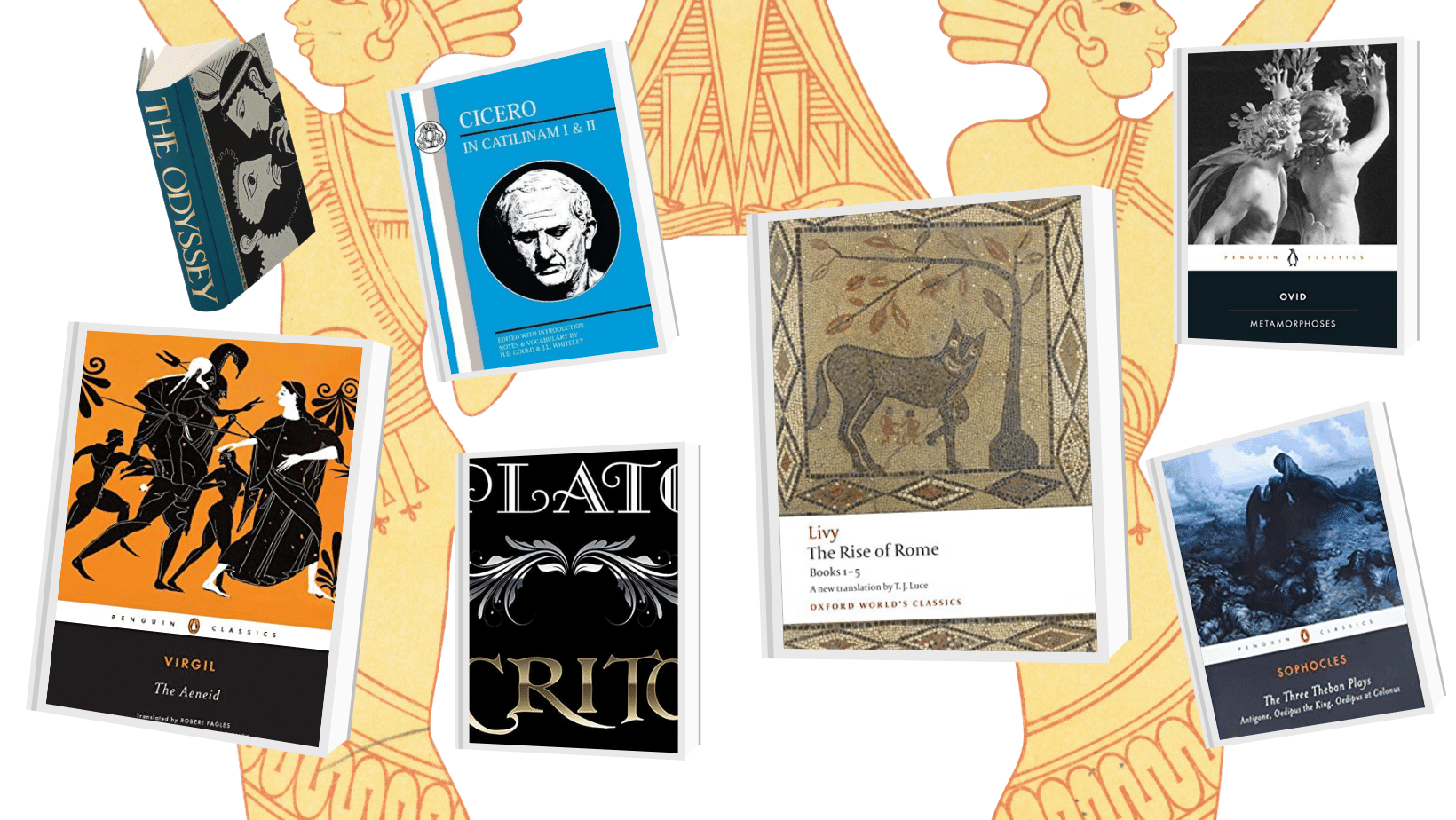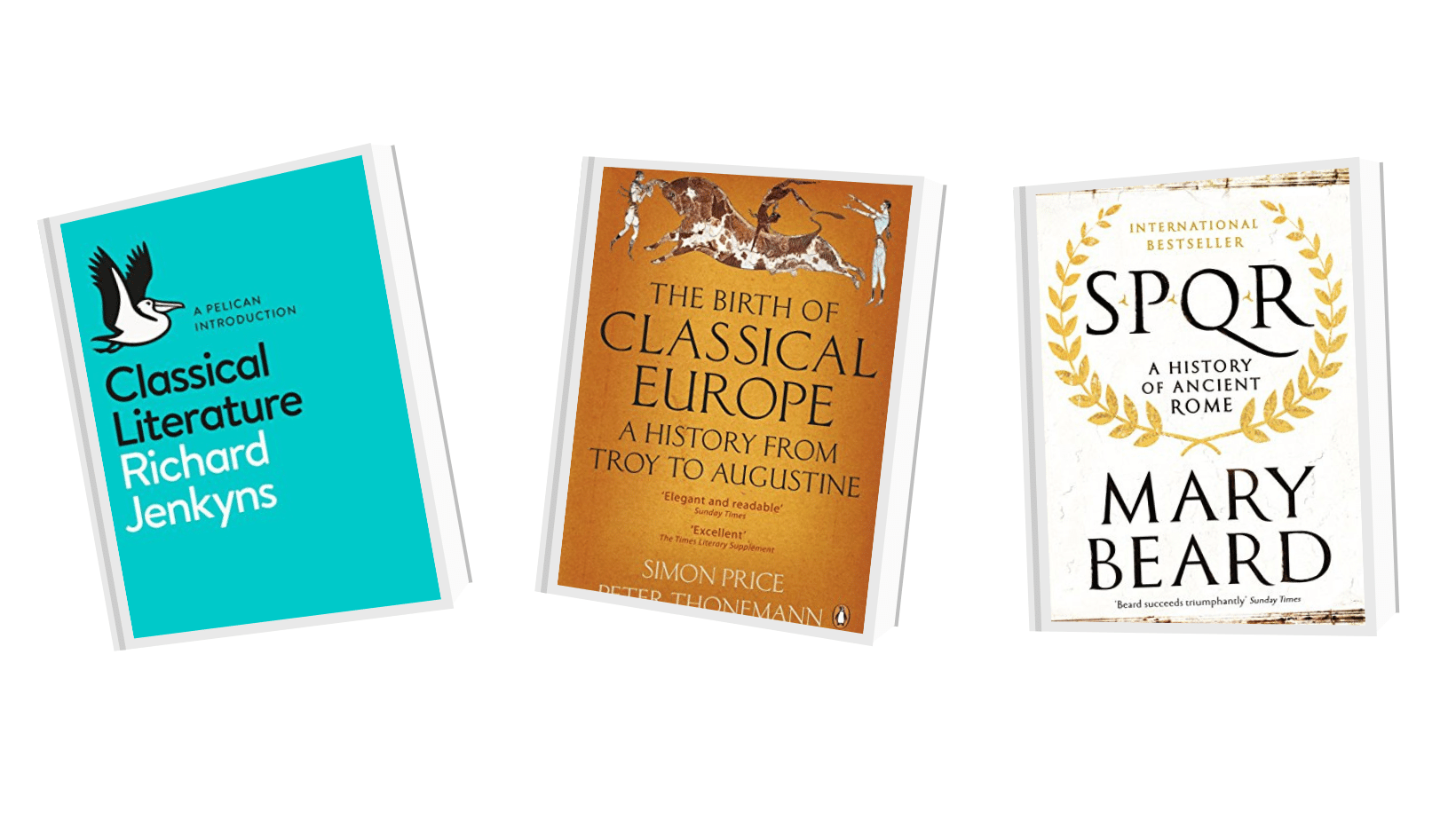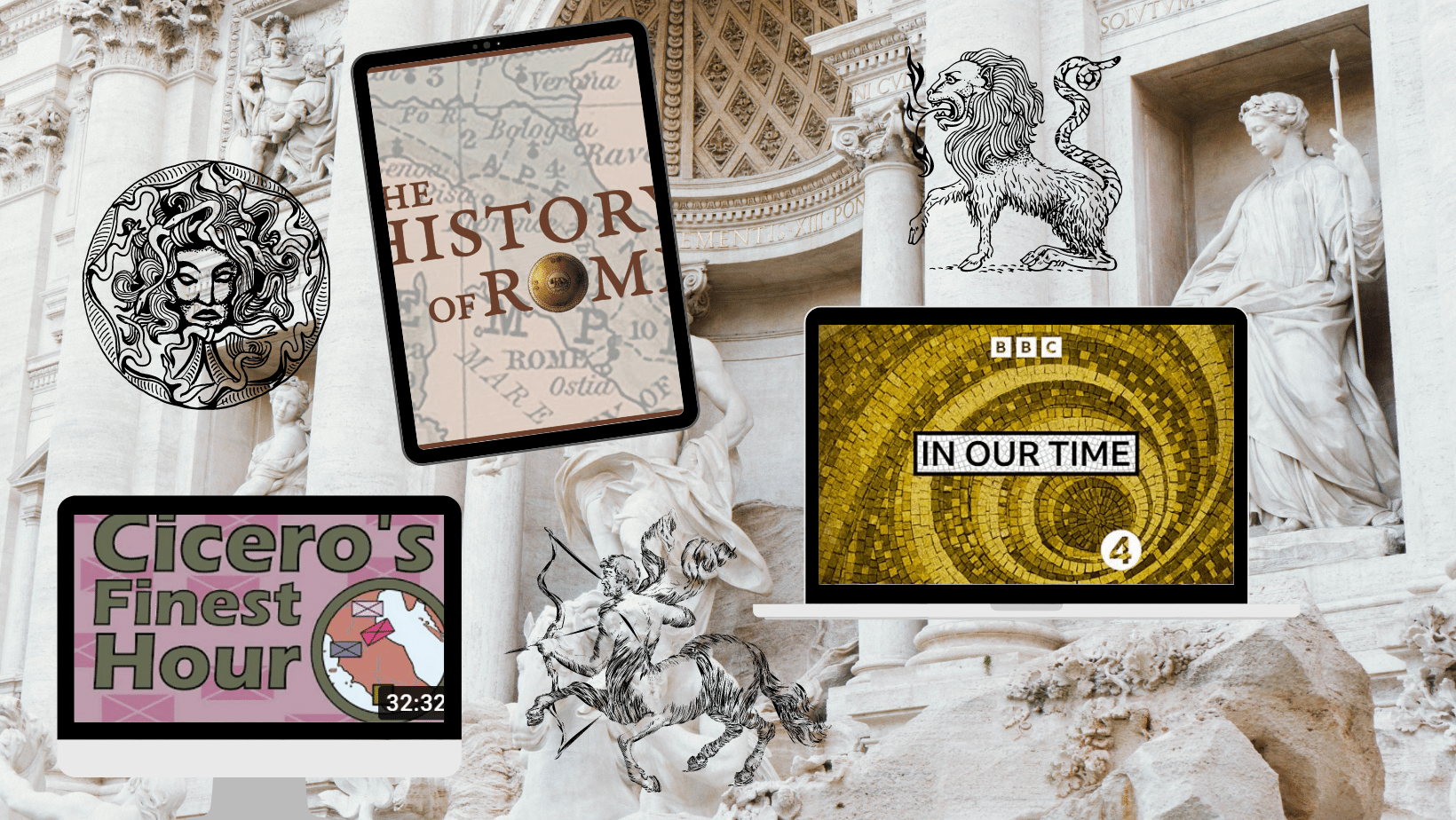Preparing for Classics at University: Reading, Personal Statement, Oxbridge Interview Questions
If you’re thinking about studying Classics at university, you might be a little daunted or unsure as to what a Classics degree entails. Classics is an exciting and broad-ranging subject that encompasses a huge variety of areas. At university, studying Classics allows you to explore ancient languages, literature, archaeology, art, philosophy, history, and far more, spanning several millennia and crossing continents. Although ancient Greece and Rome form the main focus of Western Classical study in the UK, you are by no means limited to studying these civilisations if you chose to do a Classics degree. Read an Oxbridge Classicist’s view on why to apply for Classics here.
You don’t need to have studied Classics at school to apply for the subject at university, so anyone with an interest in the ancient world can apply! The skills you have gained at school studying other languages, literature, or history, will put you in a great position to apply for Classics. Universities are looking for your potential, not what you already know, so your application and personal statement should show an inquisitive, open mind and a willingness to engage with challenging questions and discussions.
What Degree Should I Apply For?
Classics degrees in the UK come in many shapes and sizes, and can be combined with other subjects such as English and Modern Languages in joint honours courses. Lots of universities offer a variety of courses, so you could choose to apply for a bachelor of arts in: Classics; Ancient History; Archaeology; or joint honours such as Classics and English; or Classics and Modern Languages. Before starting your application, you should make sure you are happy with the degree you have chosen to pursue. The Classics faculty at Oxford offers six different undergraduate courses, whilst at Cambridge you can study either Classics, or Archaeology (or Ancient Near Eastern studies). Do your research on the course you want to study so you know what the degree will entail- for example, know the dates covered by the Oxford Classics or Classical Archaeology and Ancient History courses, so you don’t spend your personal statement discussing periods the degree wouldn’t cover!
Preparing to Apply for Classics: Reading and Research
Because Classics covers such a broad field of topics, you should pick a few areas of interest to focus on for your application- it’s impossible to learn everything about the ancient world even over the course of a three or four year degree! The best things to focus on reading are translations of the ancient texts, as these are the primary sources you will have to engage with at university. You can find copies of translations in most libraries, and often the introductions to translations in Penguin editions or Oxford World Classics can give great summaries of the key themes and debates surrounding the texts. The most important thing to remember is that there is no right answer to what you should have read, and no correct amount- two or three well thought-out ideas are better than lots of scrappy knowledge.
Ancient Texts & Possible Topics to Consider When Reading Them:*
● Homer, Iliad, Odyssey: Heroism, epic poetry
● Sophocles, Antigone: Greek Tragedy, gender, politics
● Plato, Crito: justice, laws (n.b. This is quite a short Platonic text so a good place to start with philosophy. Plato’s work can be very confusing so don’t be daunted if you don’t grasp everything!)
● Thucydides, book 6: Greek identity and history
● Cicero, In Catalinam: Politics in the Roman Republic, rhetoric
● Livy, Ab Urbe Condita, books 1-5: Morality, Roman religion
● Virgil, Aeneid: Augustan politics
● Ovid, Metamorphoses: myth, genre of his poetry
*This list contains just a few suggestions, and you should feel free to look at any areas that interest you!
If you study Classics or Latin at school, a great way to start with reading for your application is by exploring further into the texts or subjects you are already familiar with. Reading the rest of your A-Level text in translation is great, and it can be very useful to have a look at some passages of the original language alongside a translation to show your willingness to engage with the ancient text directly. If you are completely new to Classics, or not sure where to start, you can try reading some of the introductory books listed below for a good overview and to highlight topics you might find interesting.
Introductory Books for Classics:
● Classics: A Very Short Introduction (2000), Mary Beard & John Henderson: looks at the way we interact with Classics in the modern world. This series includes lots of other titles, including Classical Literature (2014), William Allan; Ancient Greece (2009), Paul Cartledge; Ancient Philosophy (2000), Julia Annas; The Roman Republic (2012), David M. Gwynn- and many more!
● Classical Literature A Pelican Introduction (2015), Richard Jenkyns: Examines key Classical authors and genres in short chapters which can help identify what interests you most
● SPQR: A History of Ancient Rome (2015), Mary Beard: a good overview of Roman history spanning 1000 years, a great and accessible introduction if you haven’t studied Roman history before
● The Profile History of the Ancient World Series, various authors: take you through the history of ancient Rome (and Greece less so) right up to Late Antiquity, including material evidence (n.b. Check the time-span of the degree you’re interested in)
● The Birth of Classical Europe: A History from Troy to Augstine (2011), Simon Price & Peter Thonemann: considers how our understanding of and relationship with the ancient past is reflected and shaped by the ancients own interaction with their past
Exhibitions, Podcasts, and More:
A brilliant way to immerse yourself in the Classical world is to visit exhibitions in museums and galleries, as this can allow you a first-hand look at parts of the ancient world that still survive today. The British Museum in London is a great place to start, as it has a huge collection of artefacts available to view at no cost. The Roman Palace at Fishbourne in East Sussex is home to the largest collection of mosaics in their original home in the UK. Mike Duncan’s podcast ‘The History of Rome’ begins with Aeneas’ journey to Italy and takes you right up to the exile of the last emperor of the Western Roman Empire. Episodes of the BBC radio show ‘In Our Time’ on Classical individuals, theories, and texts feature leading academics- you might even end up being taught by some of them! The Youtube Channel ‘Historia Civilis” has episodes of around 20-25 minutes long that cover key eras and events in Classical history that can help with your broader knowledge.
The Application Process: Classics Personal Statement, Tests, and Oxbridge Classics Interviews
Your Classics Personal Statement:
If you’re applying to Oxbridge, your personal statement might form a starting point for some of your interviews. Even if you’re applying for universities that don’t interview, it’s vital that you read and understand everything you discuss in your statement! This is about what interests you, so focus your statement on the texts you feel most confident and engaged with. Try to challenge yourself with concepts or debates you discuss, and don’t be afraid to state your opinion with well-thought out support. Once again, the ancient texts and sources should be the main focus here. If you’ve seen an exhibition or piece of art that really intrigued you, show the tutors how this initial interest translated into further research and understanding.
Oxbridge Language Tests:
Language aptitude tests form part of the application process for all students applying for Classics at Oxford, and those who are interviewed at Cambridge. If you’re studying Latin and/or Greek at A-Level, it is important in either case to keep on top of the vocabulary and grammar you’ve been encountering at school. Keeping a regularly updated vocabulary list for whenever you encounter new words, and doing sample passages you can find in books at school is the best way to prepare. If you haven’t studied either Latin or Greek, or have a qualification below GCSE level, you’ll have to take a test that assesses your language aptitude. Advice and sample papers can be found on the Oxford and Cambridge websites. Practice is key, and asking your teachers or tutors for support can make a big difference.
Read:
Oxford and Cambridge Classics Interviews:
The main thing to remember is that the tutors are not trying to catch you out, but want to help you to have an intellectually stimulating and challenging discussion. Classics interviews can vary considerably in content and structure due to the scope of the subject, but often you’d be given a passage or image to look at which the tutors will then discuss with you. Often the most obvious and simple things are easiest to miss, and don’t be afraid to say the wrong thing, as this will become part and parcel of your time at university if you gain a place. Try to relax and enjoy the interview as an opportunity to talk about what you find interesting with some of the world’s experts in the field!
Try these Oxbridge Classics Interview Questions:
What is missing from Classics?
Should we still study Classics given how it promotes slavery / rape / death?
What is the use of dead languages?
For more information on preparation for Oxbridge Classics interviews, check out our Classics Interview Preparation guide. Gain insights into the Oxbridge Classics interview process from previously successful candidates, discover the different formats of interview and top tips on how to approach and structure your responses from U2’s Oxbridge Classics tutors.
Good luck!
By Lorelei (U2 Classics Tutor - St Anne’s College, Oxford Graduate)
Looking for a Personal Statement Tutor or Support For Your Wider Oxbridge Classics Application, Including Interviews?
U2’s Oxbridge-educated mentors have a close insight into what admissions tutors like to see in a Classics personal statement, and can help students to convey their skills, motivations, and long term goals, in order to stand out from other applicants. The statement should be the candidates own work, but our mentors will provide direction and guide you through the process of content building and writing. We offer offline drafting as well as tuition sessions.
Oxbridge Classics Mentoring
U2 offers CAT admissions test preparation, as well as wider Oxbridge Mentoring programmes (book a free consultation to discuss options). We have a large team of Oxbridge-educated Classics mentors including 1st Class, Master’s and PhD level graduates.
The Process:
1) We suggest an Oxbridge Classics graduate as a tutor and send their full CV for review. Our tutors are deeply familiar with the admissions process to study Classics and related degrees at the University of Oxford and Cambridge, and are well-placed to guide you through personal statement curation, the entrance exam and the interview process. We may suggest a range of application tutors to choose from with slightly differing rates depending on qualifications and level of experience.
2) We typically suggest beginning with a 1.5 hour informal assessment/ taster session, where the tutor will informally assess the student’s current performance level for application, including test and interview. Following this, we issue a report with feedback, and structure a plan to best prepare.
3) U2’s approach for regular Classics application sessions: The main focus of tutorial sessions will be to explore material that can be discussed in the personal statement and at interview - this may sometimes stretch from A-Level standard to First Year Undergraduate. Tutors ensure each student refines their interests within Classics and is exposed to a range of approaches and new concepts, guiding students in their reading and wider subject exploration. Together, we build a case for the student, solidifying the stance and direction they will take during interview and honing skills for the admissions test if applicable.
Frequency of sessions can be decided between student and tutor. Students can take either ad hoc sessions, or we structure a full programme for preparation, which may include further co-curricular opportunities such as our research projects, and Oxbridge mock interview days. Honing the skills necessary to succeed for Oxbridge ideally requires long-term preparation and mentoring presents a wonderful opportunity to learn from some of the very best Oxbridge has produced. We also provide GCSE, A-Level or IB Greek and Latin support if needed.
Sessions from £75/h + VAT.





